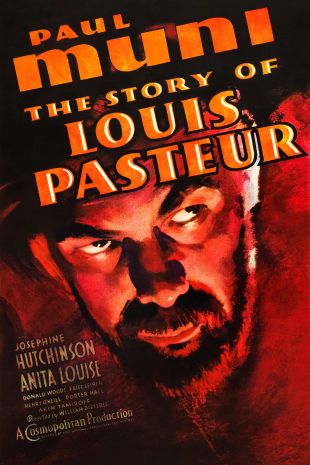
Although there's a bit of fiction in The Story of Louis Pasteur, on the whole this is one of the more factually based of Hollywood's legendary biopics. Some incidents have been altered, others invented, and of course a great deal of telescoping of time has been employed, but Pasteur is still a valuable history lesson. Of much more importance, it's a thoroughly engaging dramatic experience, with a solid script that is filled with excitement, power, and suspense. True, some of the moments are a bit contrived, but one is more than willing to buy them for the payoff they bring. One of the more interesting aspects of the screenplay is that it doesn't spend much time bothering with Pasteur's early days. By the time we meet him, he has already created the process of pasteurization (which, ironically, he is probably most famous for among members of modern audiences), and the film concerns itself with his campaign for proper sterilization of medical equipment and for cures for anthrax and rabies. It sounds dry, but it's presented in a fascinating and involving manner by director William Dieterle, who also keeps things going at a rapid clip and doesn't let the film ever get bogged down. Pasteur's biggest asset, however, is its Academy Award-winning performance by the magnificent Paul Muni. It's a wonderful achievement, a flashy yet nuanced turn that brings life and vitality to the film while finding plenty of time for quiet, reflective moments. Muni finds a great foil in Fritz Leiber's perfectly played antagonist and gets beautiful support from Josephine Hutchinson. Pasteur makes history come alive, even for those for whom the subject is traditionally a bore.
